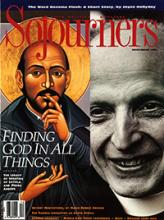The old priest thought about the task he faced and sighed, settling into the worn chair behind his desk. He had lost count of the number of winters that had passed since he had come to this neighborhood. Other communities changed, people came and went, the city was bursting at its center and seams with growth. But this neighborhood seemed only to grow poorer.
His church was flanked by families whose ancestors had once lived in the slave quarters of southern plantations, whose parents and grandparents had migrated north at the turn of the century; by Appalachian mountain folk who had fled rural despair in search of promised jobs a generation later; and by Spanish-speaking refugees who had arrived in the last decade with violence at their heels. Some of the older families had lived together for years, generation after generation, their children becoming friends as they had years before. But the mix had grown uneasy, explosive at times, as jobs disappeared and extended families crowded in together and resources never seemed to stretch far enough.
It was about 2 o'clock in the afternoon when the old priest sat down to write, about the time the snow began to fall. The clock in the church's tower rang out the hour in two dull, slow gongs. His life was so full with the demands of his parish that it had become tradition for him to carve out space the day before Christmas to begin his sermon for the next morning. He remembered as a young priest beginning to think of the next week's sermon as soon as he had finished the last, taking the week to pore over commentaries and polish his thoughts. Now even his most important sermon of the year found time only the day before.
Read the Full Article

